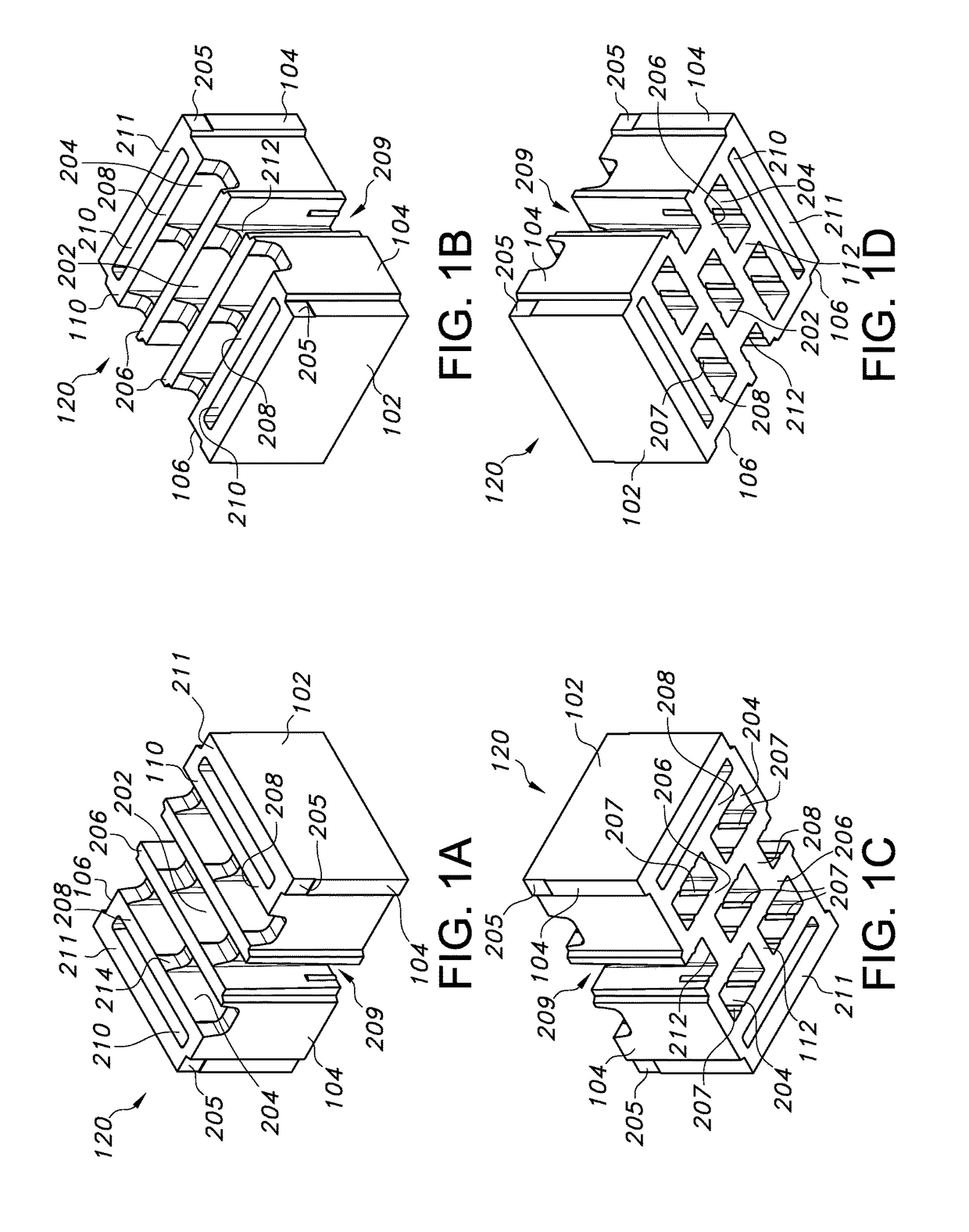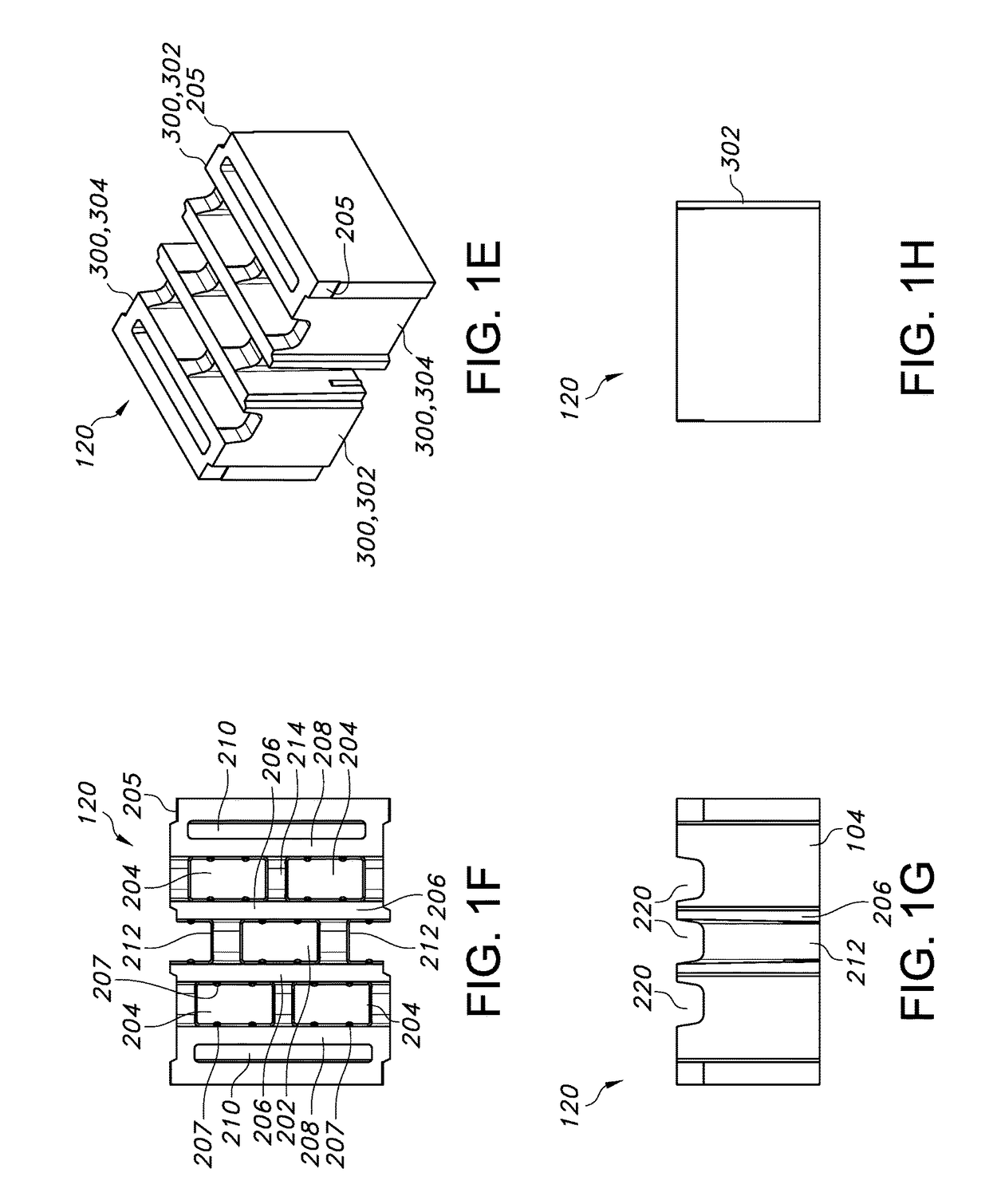Masonry block system
a masonry block and block system technology, applied in the field of masonry blocks, can solve the problems of difficult to secure the insulation within the block, difficult to provide the insulation of the masonry block easily and economically, etc., and achieve the effects of less expensive, greater insulation value, and greater strength and rigidity
- Summary
- Abstract
- Description
- Claims
- Application Information
AI Technical Summary
Benefits of technology
Problems solved by technology
Method used
Image
Examples
Embodiment Construction
[0044]The present invention will now be described more fully in detail with reference to the accompanying drawings, in which the preferred embodiments of the invention are shown. This invention should not, however, be construed as limited to the embodiments set forth herein; rather, they are provided so that this disclosure will be complete and will fully convey the scope of the invention to those skilled in the art.
[0045]The invention is a masonry block 100 for building masonry block walls. The masonry block 100 is constructed to receive insulation material. The insulation material may be in any suitable form, for example, a rigid foam block, batting, or spray foam insulation.
[0046]The term “masonry block 100” is a general term for the block according to the invention and includes a stretcher block 120, a half block 140, an end block 160, a corner block 180, and a spacer block 190. Incorporated into each block 100 are one or more chambers or recesses 200 for receiving insulation am...
PUM
 Login to View More
Login to View More Abstract
Description
Claims
Application Information
 Login to View More
Login to View More - R&D
- Intellectual Property
- Life Sciences
- Materials
- Tech Scout
- Unparalleled Data Quality
- Higher Quality Content
- 60% Fewer Hallucinations
Browse by: Latest US Patents, China's latest patents, Technical Efficacy Thesaurus, Application Domain, Technology Topic, Popular Technical Reports.
© 2025 PatSnap. All rights reserved.Legal|Privacy policy|Modern Slavery Act Transparency Statement|Sitemap|About US| Contact US: help@patsnap.com



